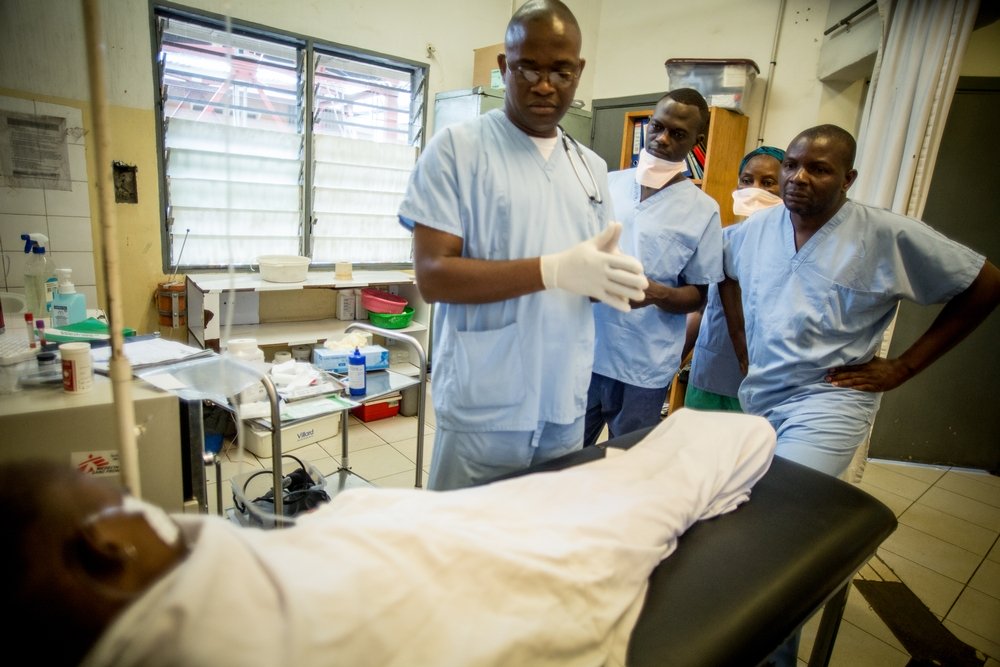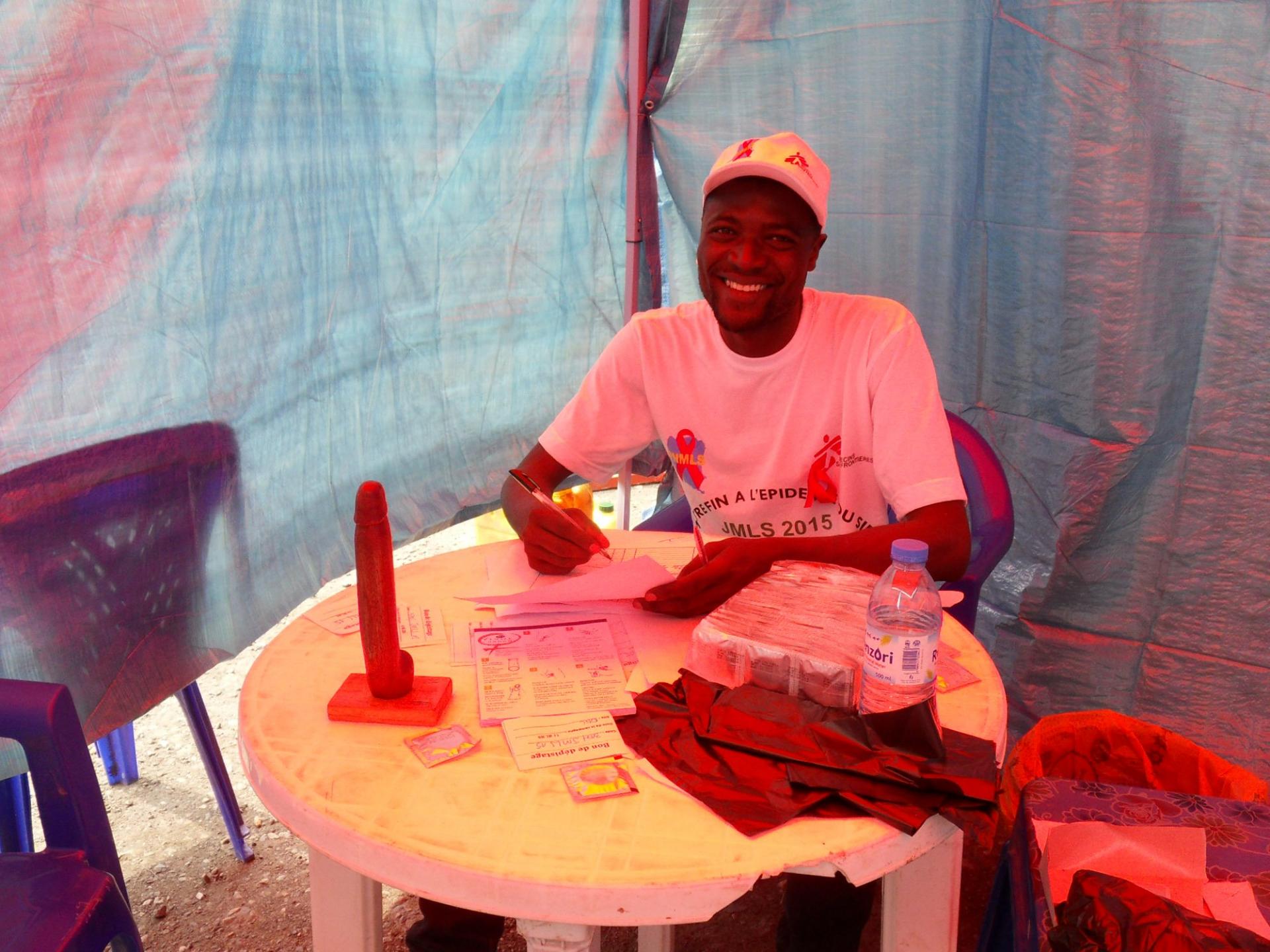Despite the tremendous progress made in the fight against HIV, many countries in West and Central Africa are still left behind the AIDS revolution that brought treatment to over 13 million people.
Barely a third of the people who need it receive antiretroviral treatment in those two regions, against over half of those in the high burden countries of Southern Africa.
This is despite the fact that HIV prevalence is more than three times higher in the South of the continent.
In the DRC, 83% of the people living with HIV have a death sentence hanging over their heads because they don’t have access to life-saving treatment.
Clémentine Tete
‘I rely on the generosity of others.’
I am 45 years old and I am alone. I lost my parents when I was seventeen and I am now divorced because my husband left us, me and our five children.
One day, seven years ago, I noticed that I had strange things on my legs. Later, I started to get a fever, so I went to a hospital in Kinshasa. Now I know that I have HIV and that these things on my legs are due to a cancer, Kaposi’s Sarcoma.

But back then I didn’t know anything about it. I thought that it must be malaria or typhoid fever. When I asked the nurses what was wrong with me, they wouldn’t say anything. One of them said, ‘Go away. We know.’
Later, a nurse told my sister that I had a bug ... and that is how I found out I was HIV positive. I had no other choice but to pay for my medicines. I could for a while, but once my money ran out, they wouldn’t give me any more.
When I left the hospital I didn’t have any medicine or anyone to support me. Luckily I explained my situation to a friend who took me to the health centre.
There, I was given medicines, but no explanation about what they were or why I had to take them. The medicines caused a lot of side-affects: my entire face swelled up, I couldn’t even open my mouth, or see because my eyes were too swollen. Perhaps it was an allergy, I don’t know.
So when I went back to the health centre six months later, I was in a bad way. Again, the medical staff stopped giving me the medicines – I’m not sure if it was because there weren’t any or because I was too sick. I wasn’t told anything. I was utterly desperate.
Luckily I was able to meet other HIV-positive people who supported me. A lot of people helped me. Mama Clarisse from the RNOAC association sorted the situation out by talking to the health centre.
She also sent me to the MSF’s Kabinda hospital. There, at the hospital, I was able to restart my treatment. They treated me until I felt better.
Find out more about MSF's work in the Democtratic Republic of Congo.
